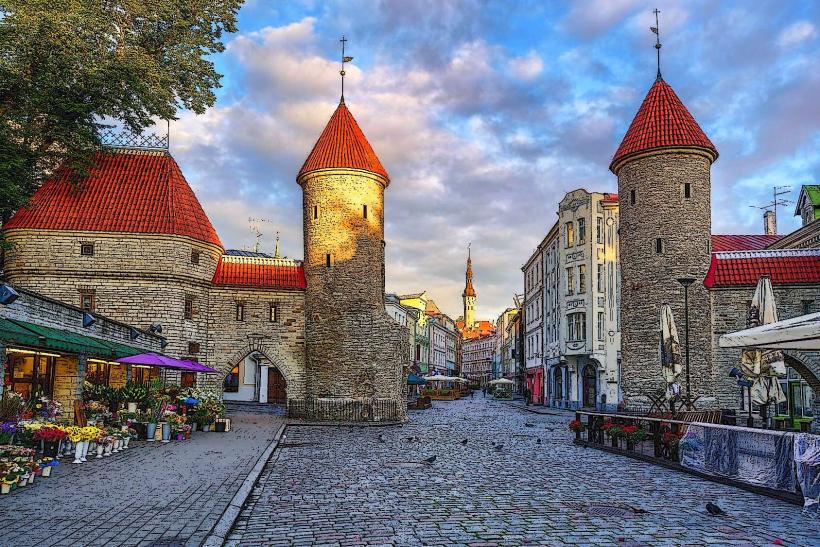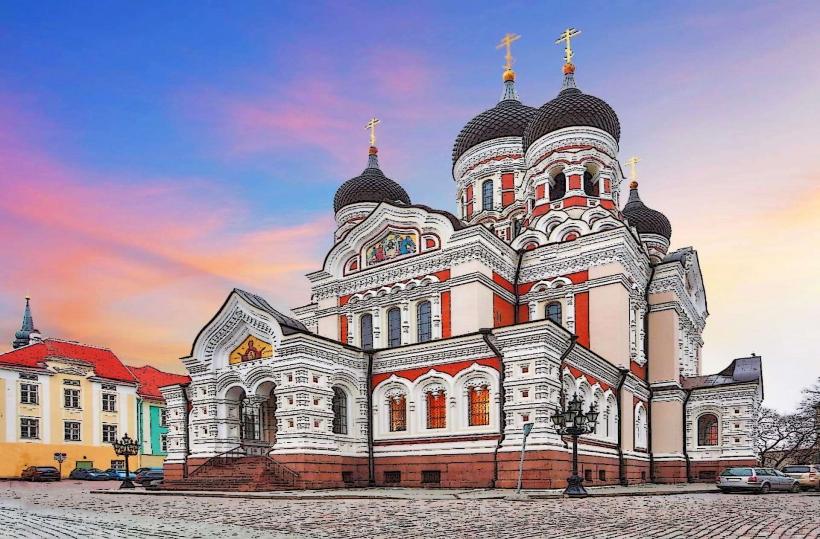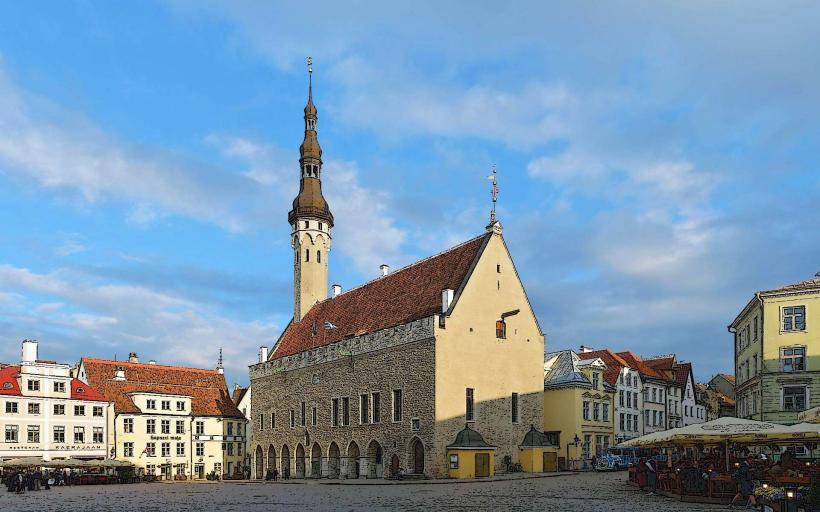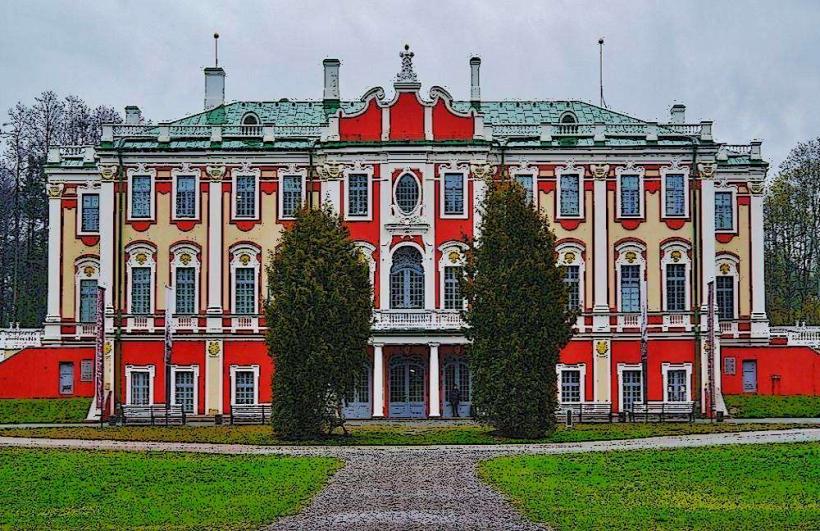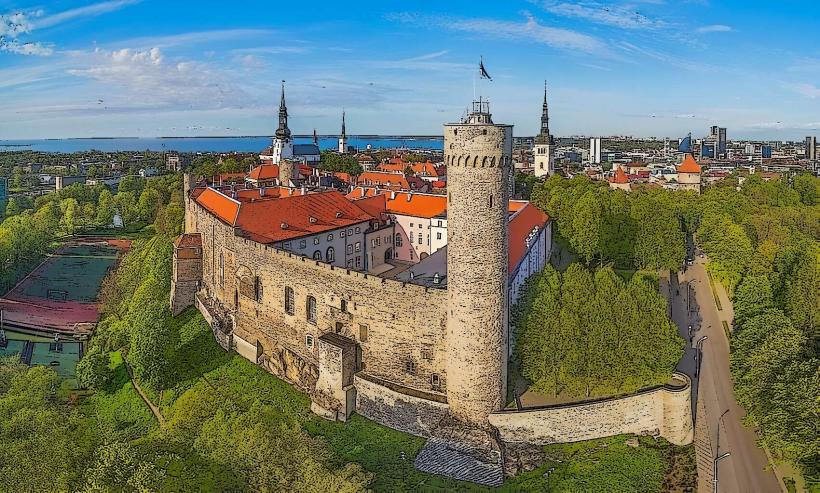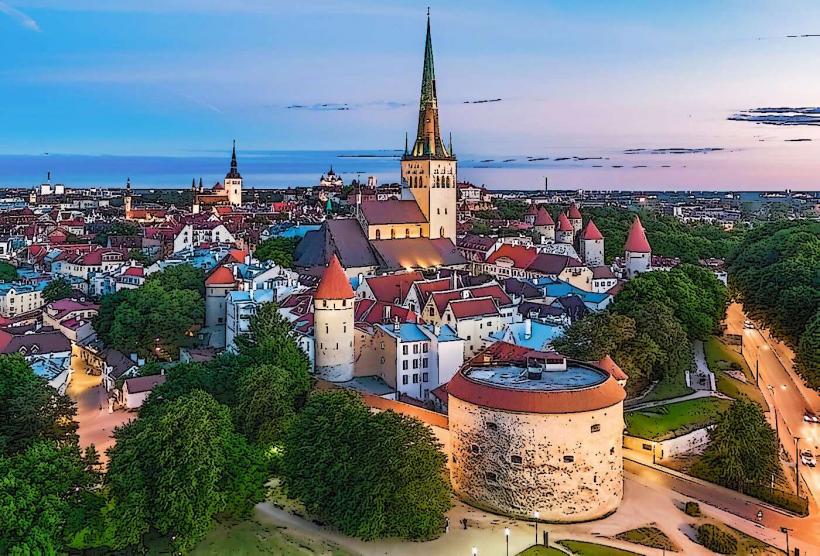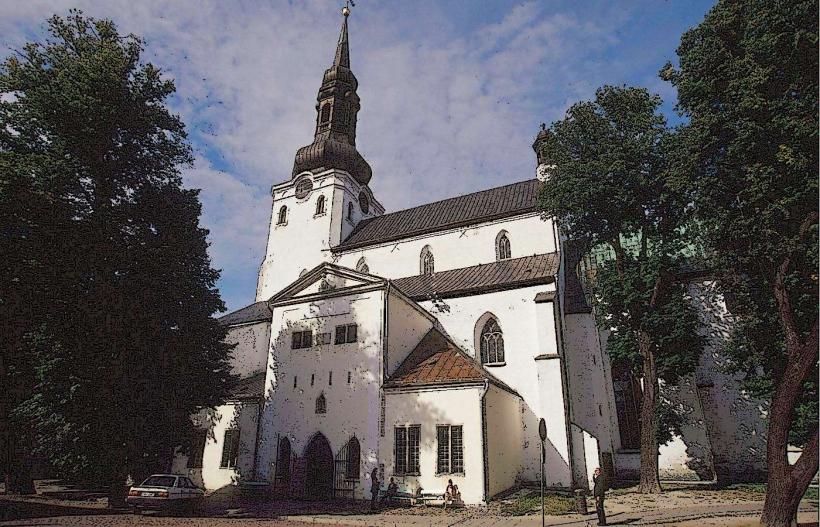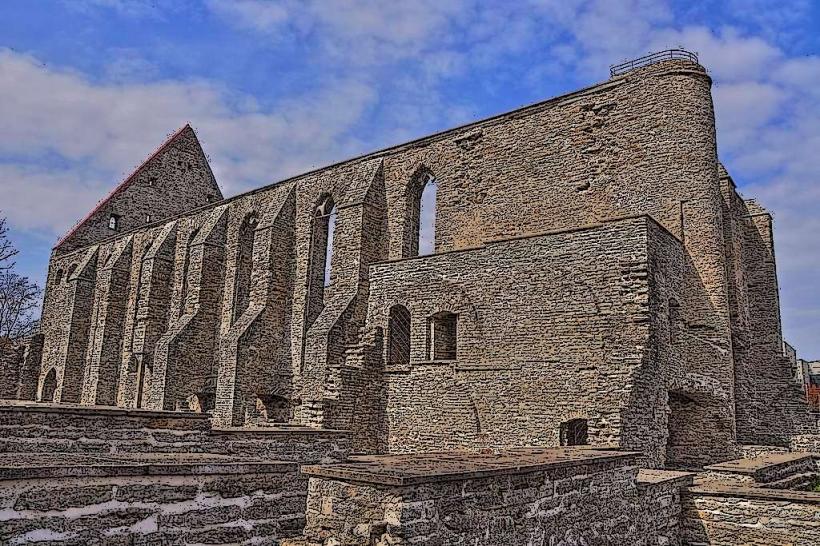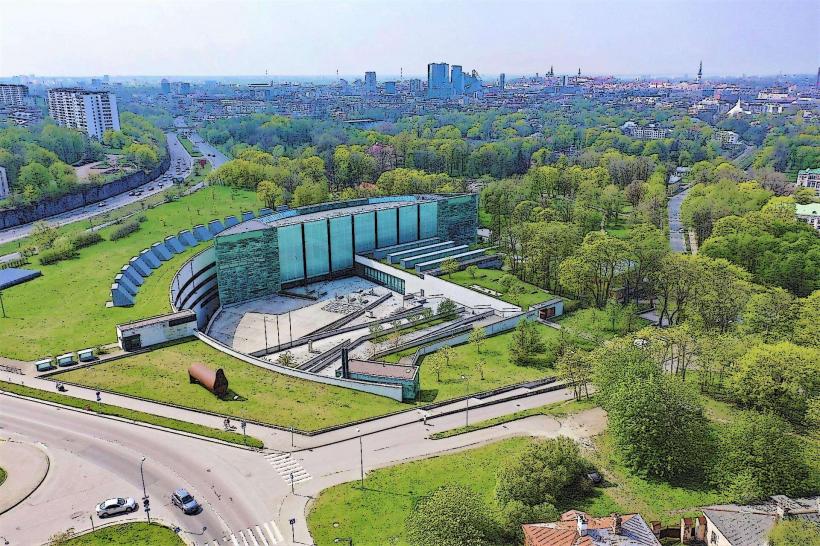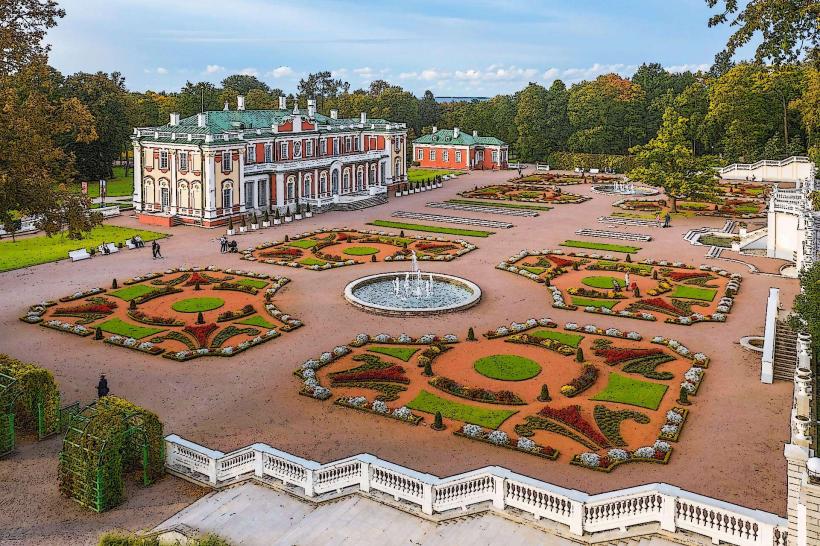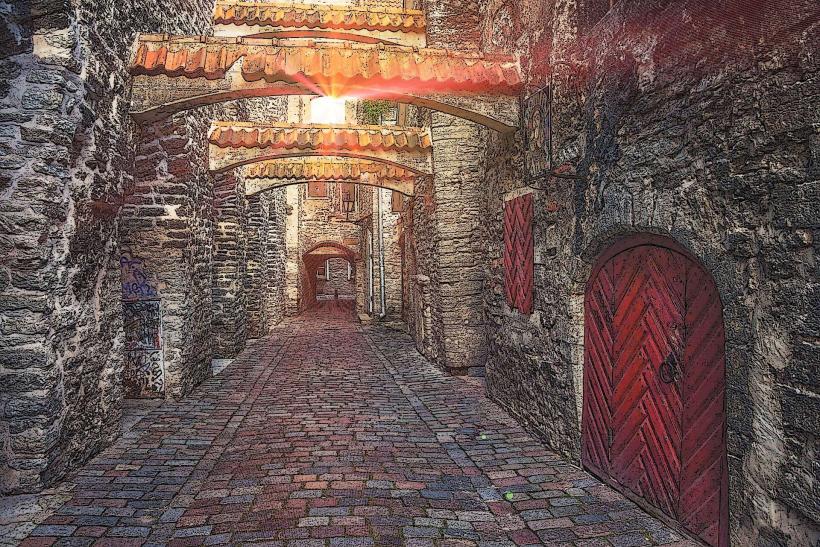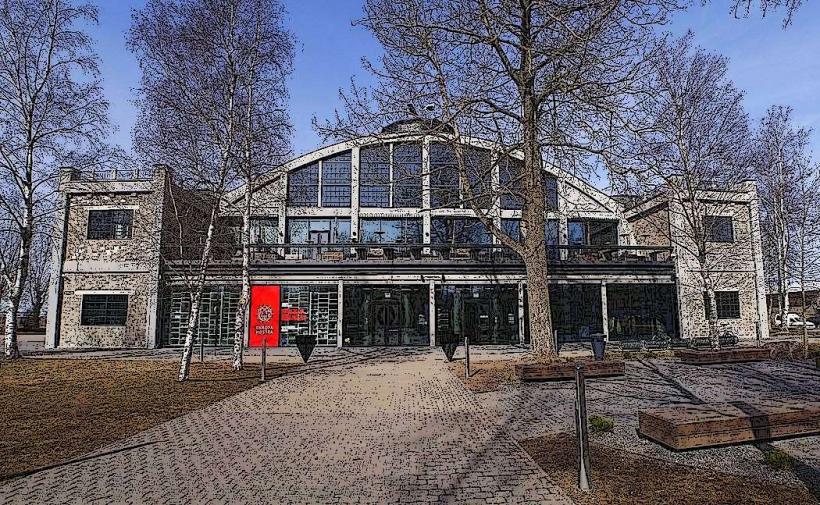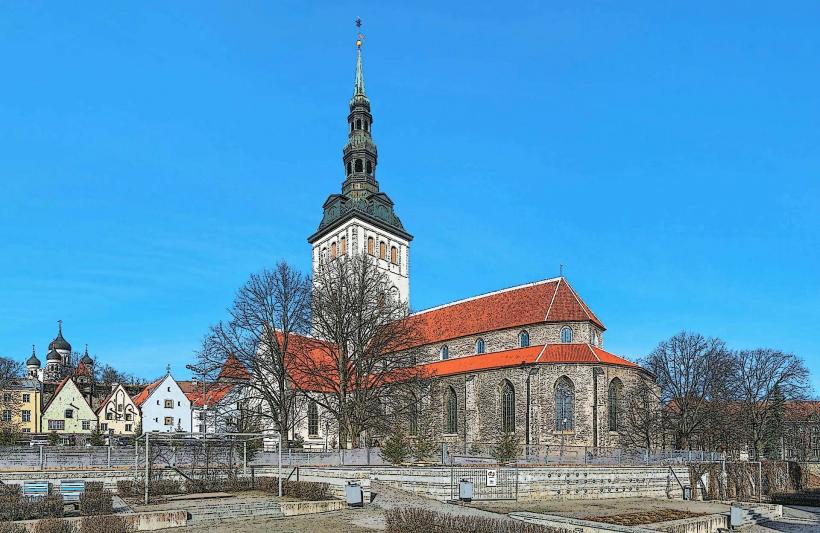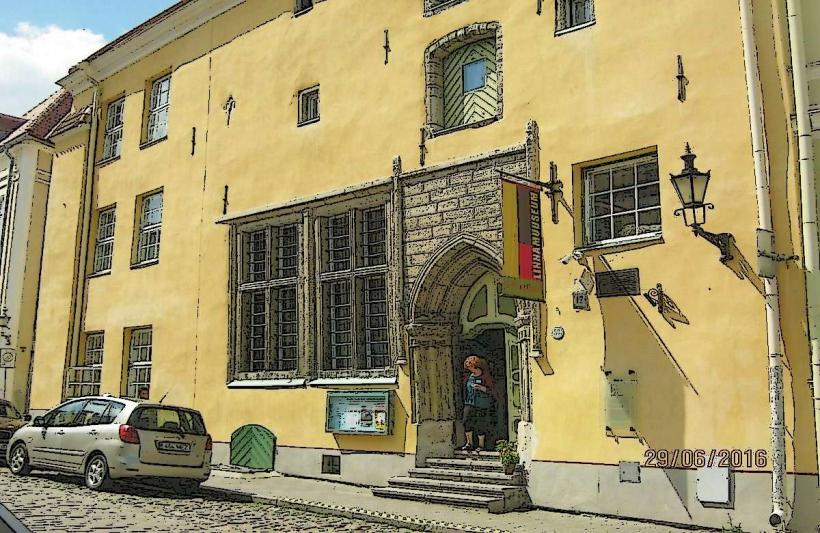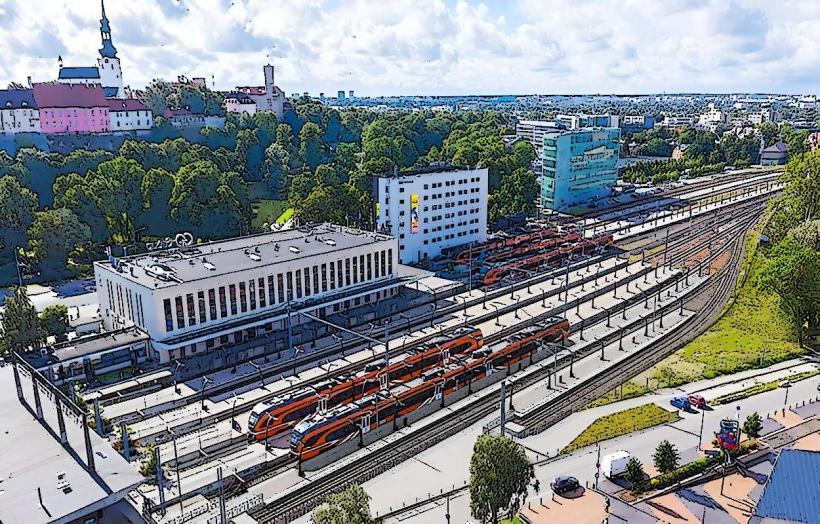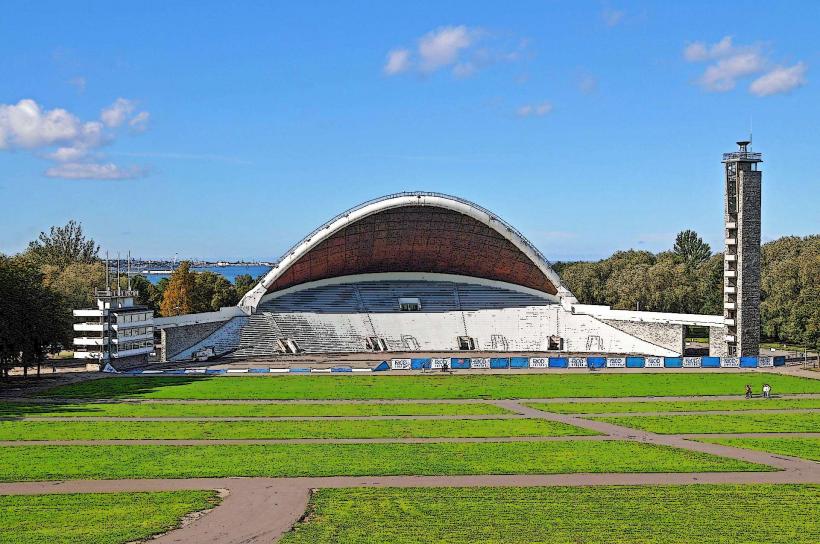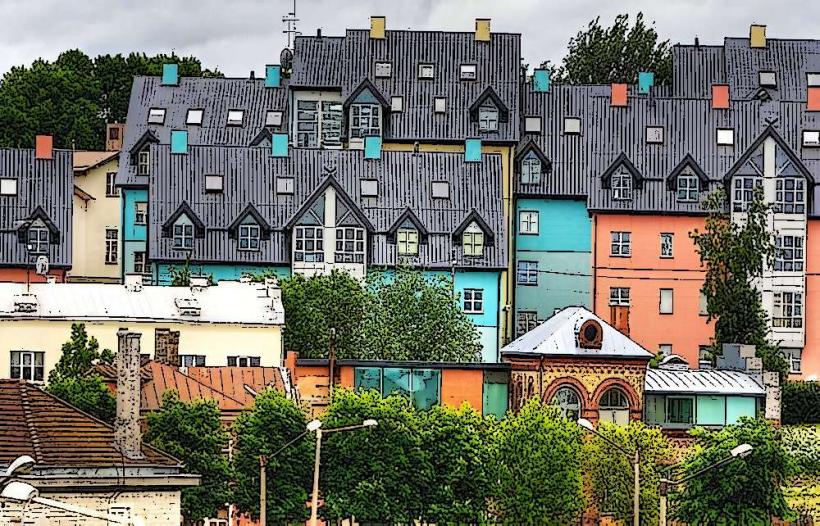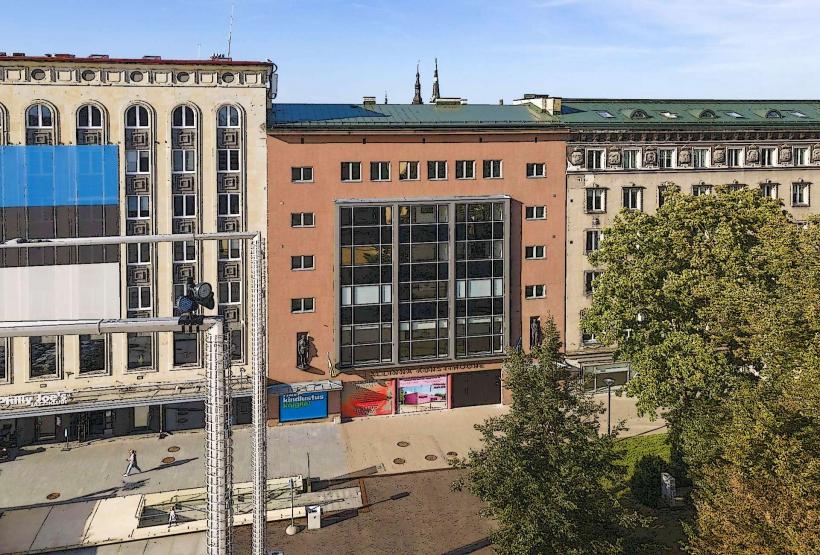Information
Landmark: Museum of OccupationsCity: Tallinn
Country: Estonia
Continent: Europe
Museum of Occupations, Tallinn, Estonia, Europe
The Museum of Occupations documents the 50-year period of Soviet and Nazi occupation in Estonia from 1940 to 1991. It is located in Tallinn, the capital city of Estonia.
Visual Characteristics
The museum occupies a multi-story building constructed primarily from concrete and glass. Its exterior features a rectilinear design with large window panels and a grey concrete facade, reflecting a modernist architectural style.
Location & Access Logistics
The museum is situated at Toompea 8, on the southern slope of Toompea Hill. It is approximately 0.7 kilometers southwest of Raekoja plats (Town Hall Square). Limited paid street parking is available on nearby streets, with larger underground parking facilities at Vabaduse väljak (Freedom Square) approximately 0.2 kilometers east. Public transport access includes tram lines 3 and 4 to the "Vabaduse väljak" stop, and numerous bus lines (e.g., 16, 17, 23, 24, 40, 42) stopping at "Vabaduse väljak" or "Tõnismägi".
Historical & Ecological Origin
The Museum of Occupations opened in 2003. The building was specifically designed for the museum by architect Kalle Rõõmus. Its original purpose was to serve as a permanent exhibition space dedicated to preserving the memory and documenting the history of the occupations of Estonia by the Soviet Union and Nazi Germany.
Key Highlights & Activities
Visitors can view historical artifacts, read personal testimonies, and engage with interactive multimedia installations detailing the periods of occupation. The permanent exhibition, "A Free Nation," covers the Soviet and Nazi regimes. Temporary exhibitions are also regularly featured.
Infrastructure & Amenities
Restrooms are available on-site. The museum building provides full indoor shade. Cell phone signal, including 4G and 5G, is generally strong throughout the facility. A small cafe is located within the museum, and additional food vendors and restaurants are accessible on Toompea Hill and around Vabaduse väljak.
Best Time to Visit
Mornings typically experience fewer visitors, allowing for a more contemplative experience. As an indoor facility, external weather conditions are not a primary factor, but the months of May through September offer the most comfortable temperatures for walking to and from the museum in Tallinn. Lighting for photography within the exhibits is controlled and consistent.
Facts & Legends
The museum's collection includes numerous personal items donated by individuals who experienced the occupations, providing direct human perspectives on the historical events. A specific tip for visitors is to utilize the free audio guide, which offers extensive contextual information and personal narratives for the exhibits.
Nearby Landmarks
- Vabaduse väljak (Freedom Square): 0.2km East
- St. Charles's Church (Kaarli kirik): 0.1km West
- Kiek in de Kök Fortifications Museum: 0.3km East
- Alexander Nevsky Cathedral: 0.4km North
- Toompea Castle (Riigikogu - Parliament of Estonia): 0.5km North

